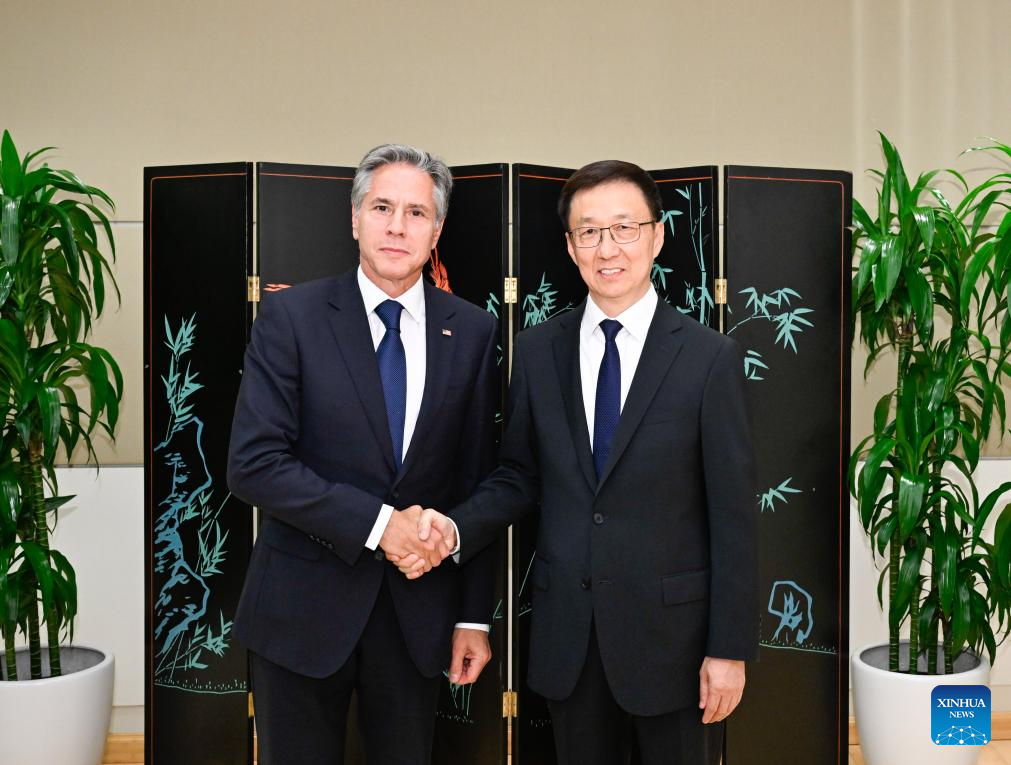By Moulik Jahan
U.S. Senator Chuck Schumer is leading a bipartisan congressional delegation to China from October 7 to meet with top government and business leaders amid China-U.S. strained ties. Schumer's trip is the first congressional visit in four years, reflecting "new characteristics" in high-level interactions between the two countries as the U.S. Congress follows the Joe Biden administration in improving relations with China.
The Chinese Foreign Ministry welcomes Schumer's visit. "We hope this visit will contribute to a more objective understanding of China in the U.S. Congress, increase dialogue and communication between the legislatures of our two countries, and add positive factors to the growth of China-U.S. relations," stated the ministry.
Schumer called it a "propitious moment" for a bipartisan delegation to approach Chinese leaders. Schumer, who has long taken a tough stance on China, said he would use the trip to appeal to the nation's top leaders for better economic reciprocity for U.S. companies blocked from Chinese markets. Schumer aims to emphasize Sino-U.S. trade reciprocity to "level the playing field for American workers," as his office said, and retain the U.S.'s significant technology edge to "protect national security."
However, the delegates should be reminded that reciprocity should be fair and mutually respectful, and the U.S. should not coerce China and cripple its high-tech industry. The U.S. has taken multiple measures to contain China in recent years, causing relations between the two countries to reach a low point. Some U.S. actions hindered economic and social progress on both sides and disturbed the global economy. For improving bilateral ties, Washington's active and honest cooperation is needed to repair their ties for the mutual benefit of their people.
Better bilateral understanding requires continual reciprocal participation. Recently, bilateral exchanges have been frequent. Chinese Vice Foreign Minister Sun Weidong's meeting with U.S. Assistant Secretary of State for East Asian and Pacific Affairs Daniel Kritenbrink in Washington was the latest in a series of China-U.S. meetings, including those between Chinese Vice President Han Zheng and U.S. Secretary of State Antony Blinken in New York and Chinese Minister of Foreign Affairs Wang Yi and U.S. National Security Adviser Jake Sullivan in Malta.

Chinese Vice President Han Zheng meets with U.S. Secretary of State Antony Blinken on the margins of the General Debate of the 78th session of the United Nations General Assembly in New York, United States, September 18, 2023. [Photo/Xinhua]
Stabilizing the Sino-U.S. economic relationship benefits both sides; thus economic communication should be improved. As Schumer said, "Whether we succeed or not, we don't know, but it's certainly worth trying." The sincerity of the delegates is crucial to the success. It is anticipated that there won't be any barriers from the Chinese side if they really wish to strengthen their relations.
But first, the U.S. government must be reasonable and pragmatic in their dealings with China. They are aware of what needs to be done to improve bilateral economic relations. Since many of the restrictive measures in U.S. policy towards China emanate from U.S. law, both sides should make headway in legislative discussions that have been straining their relationship. The U.S. legislators' visit to China should assist the U.S. bipartisan houses understand China and its free trade position and normalize bilateral ties, notwithstanding concerns.
The U.S. Congress has approved so much anti-China legislation because lawmakers lack firsthand knowledge of China, making it easier for a few anti-China groups to manipulate Congress for their own advantage at the expense of the U.S.'s national interests. The U.S. must realize that open, free and fair trade are vital to the Chinese and U.S. economies.
As the world's largest economies, both should cooperate for global growth. Artificial trade wars and unwarranted protectionism may heighten tensions and impair both countries' and the global economy's development. The U.S. should halt geopolitical provocations to China, which might damage bilateral relations. The U.S. isn't threatened by China's rise. China wants peace and win-win collaboration with others, as shown by its policies. Improved relations between China and the U.S. in the Asia-Pacific benefit both nations and meet regional aspirations.
Although the fundamental direction and design of the U.S.'s China policy remain unchanged in trade and technology, the U.S. needs to adjust its additional tariffs on Chinese products and export controls on Chinese companies and lift some sanctions on over 1,000 Chinese entities. The U.S. should abandon its two-faced approach.
The five-year trade war has caused enormous negative influence for both countries. It's unfortunate that the U.S. Commerce Department yet again added 42 Chinese companies to the export control list on October 6, citing "national security" concerns.
How will relations improve if U.S. economic pressure, unilateral bullying, and unfair persecution of Chinese firms continue? The U.S. must realize that only mutual respect can push relations to a new level that benefits both sides. Repairing bilateral trade, economic relations, climate change collaboration, green development, and confronting mutual challenges are of great importance. The U.S. should do more to create a more positive atmosphere for a meeting between their leaders. Washington must approach China pragmatically.
Recently, Beijing and Washington have had frequent communications, mutual engagements, candid interactions, and exchanges, which have helped manage the current strained bilateral situation. Joe Biden should realize that neither the tariff war launched by his predecessor nor the Entity List his government keeps extending is the best method to govern bilateral ties. Washington has no strategic advantage from these. The Biden administration should eliminate these illogical barriers on China-U.S. relations.
Moulik Jahan, a special commentator on current affairs for CGTN, is a strategic and security affairs analyst.

 中文
中文



